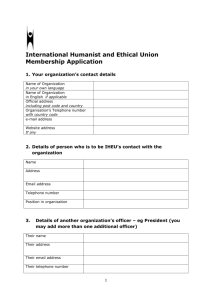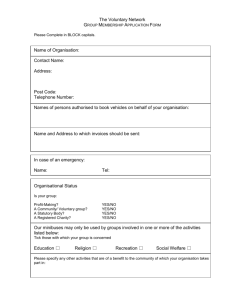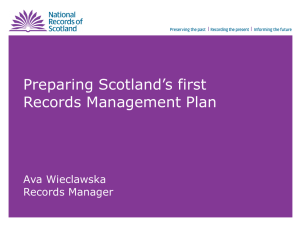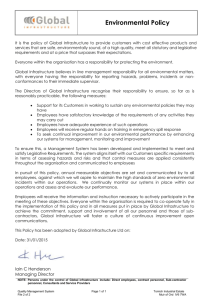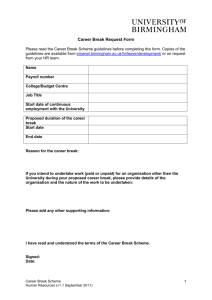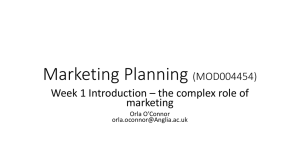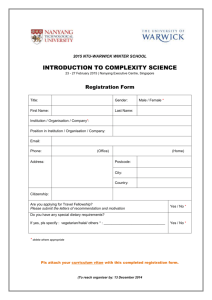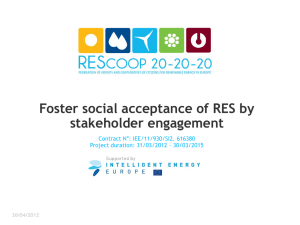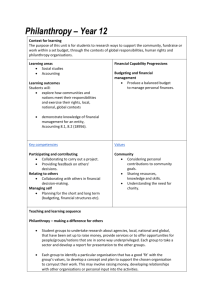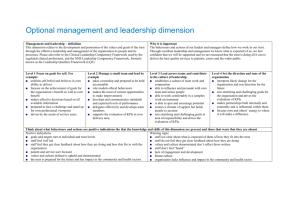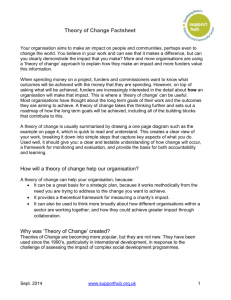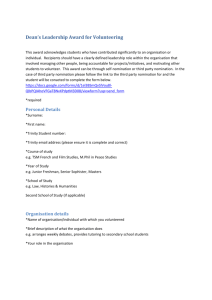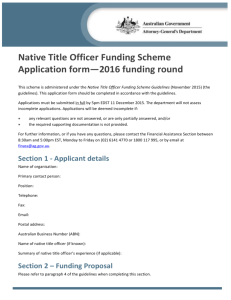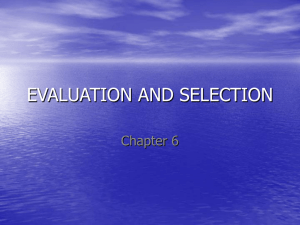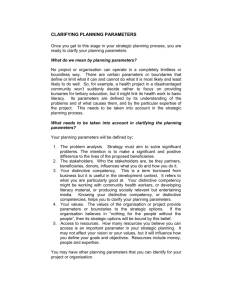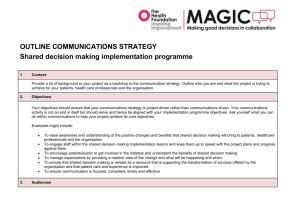What is your role in the organisation?
advertisement
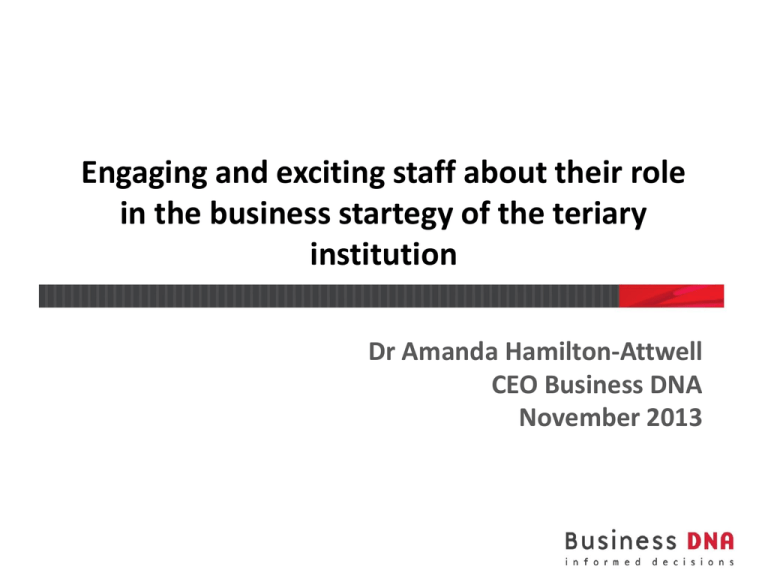
Engaging and exciting staff about their role in the business startegy of the teriary institution Dr Amanda Hamilton-Attwell CEO Business DNA November 2013 What is your single biggest problem with employee communication? …research showed that 43% of the companies that experienced share price falls in the last few years, had a poor communication strategy… …companies with an effective communications strategy enjoy an 8% premium relative to other companies in the same sector… What is your role in the organisation? The role of the Communication Professional The communication professional: Represents the voice of an organisation as he/she interacts with customers, clients, employees, partners, shareholders, competitors and the community Brings the organisation to life with a brand voice that aligns its verbal, visual and digital messages and activities with its mission and vision By clarifying the brand, helps ensure the organisation runs efficiently and effectively The role of the Communication Professional The Communication professional: builds a strategic communication plan based on thorough research communicates with a variety of audiences in a range of styles develops and edits content assesses where and how to communicate and how to evaluate the results of their work acts as the organisation’s conscience and strives for financial, social and environmental sustainability Remember You are a specialist in the packaging and the transportation of content The Business Strategy - Know what to focus on Potential communication impact High Low Low Potential impact of business focus High area on stakeholders Know your stakeholders Stakeholder group Behaviour Messages Channels/timing Name Current knowledge Current Current What their stake is Research Current attitudes Ideal Ideal knowledge Ideal Ideal Attitudes 9 10 Our people differ Groupies Empire builders Cubists Wheelers and dealers Teddy bears Greenies The 7 principles of engagement – for the communication professional Fair Trade Build Reputation and Inspire Trust Create an environment that 1 encourages a sense of being welcome Encourage opinions Treat people equally Involve people in decision making Make people feel they matter/ feel they are treated fairly 2 Inspire a Cause Create an emotional commitment Build an understanding of the future Make people feel what they are doing makes a difference Let individuals contribute creatively towards a sustainable goal 3 Create Collaboration Encourage team work We win or lose together Collaborative problem solving Collaborative decision making Obtain commitment through collaboration Eliminate Doubt/Boost Confidence Provide adequate resources 4 Establish free flowing communication and open feedback channels Inspire creativity Build credibility among peers and subordinates Encourage mutual interests Get involved 5 Build the spirit of Ubuntu Get connected with people and make them feel worthy Build friendships and working relationships Listen and understand because when you speak you will also be understood Connecting with people gives meaning to life 6 Mastering Capabilities Understand team members strengths and weaknesses Invest in your development Mentor Align efforts and reward the result – celebrate! Build a team with capable people Show their involvement in the future Cultivating Freedom Build a free functioning 7 organisation Provide freedom to innovate and make decisions Give freedom to an opinion Encourage free thinking and sharing of ideas Give people freedom to agree or disagree and to have FUN If you can get people laughing, you can get people listening,” Perry Noble Consider the kind of humour that happens at the Zappos corporate headquarters in Henderson, Nevada. The online shoe store has a list of core values that include No. 3: “Create fun and a little weirdness.” Wherever you go, across this country or anywhere in the world, people sound exactly the same when they laugh,” Noble said. “You can get two people together, and if they can share a laugh, they find something in common.” Have a plan to engage and energise Your mandate – what you are paid to do Your vision – what you dream of achieving Your strategic focus areas Your key and supporting messages Your channel platform Your resources Your tactics Your measurements Strategise everything! Business objective (Step 1) What business objective are you supporting with this communication intervention? Target audience (Step 2) For that business objective, who is the target audience(s( you need to consider and influence? Communication Objective (Step 3) For your selected business objective, what do you want to target audience to DO, THINK, REMEMBER and/or TELL OTHERS? Intervention (Step 4) What tactics or activities will you pursue? Channel (Step 5) Owner(s) and Timelines (Step 6) What is the best • Who is responsible channel for achieving for owning this your desired activity? objective? • What’s the target date for completion? Metrics (Step 7) How will you measure the success of your activity and link it to your objective.? In what time frame? 23 The answers to your questions How to engage and energise? Do not be order-takers, be strategic partners



